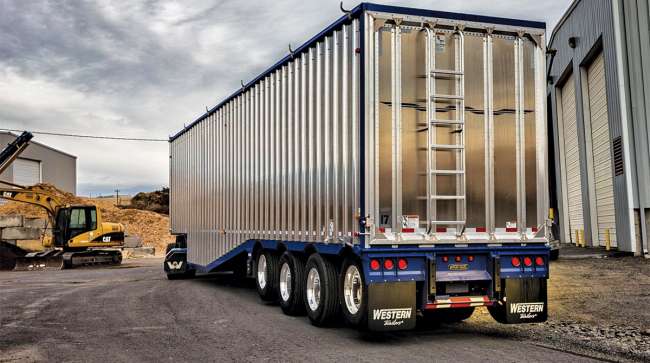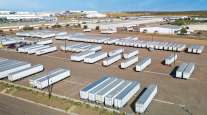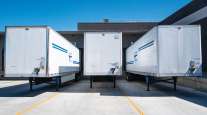Staff Reporter
Trailer Orders Fall Again in May After Brief Rise

[Stay on top of transportation news: Get TTNews in your inbox.]
U.S. trailer orders continued the trend of year-over-year declines in May following a short-lived turnaround, ACT Research reported.
Preliminary net data for the month showed orders decreased 46% to 6,100 units from the prior-year period. But orders fell further sequentially with the total declining 56.2% from the 13,750 units ordered in April. Last month experienced the only year-over-year increase since September 2023. The seasonally adjusted total came in higher at 7,200.
“With continuing weak for-hire truck market fundamentals, and already filled dealer inventories, it looks like trailer demand will remain restrained for some time,” said Jennifer McNealy, director of commercial vehicle market research at ACT. “For orders, we are now in the weaker months of the annual cycle, suggesting that there is no catalyst for stronger orders until the fall and the opening of 2025 orders.”
McNealy is anticipating that fleets will have more opportunities to purchase equipment later this year with earnings expected to improve. But she warned the impact likely will be muted for the trailer industry since carriers will likely prioritize acquiring new power units ahead of incoming environmental regulations.
[June State of the Industry: U.S. Trailers Update] - US Trailer Demand Under Growing Pressure
Read more in the June update here - https://t.co/UDAEtxRMlv pic.twitter.com/lXIBeAv3u0 — ACT Research (@actresearch) June 20, 2024
“Things have been slowly slowing down more,” said Gareth Macklam, director of sales operations at Utility Trailer Manufacturing. “We were expecting orders to be tight this year. Last October, we started to let attrition take place at our plants, start to let them slow down. Everybody thought we were kind of crazy doing that at the time. But it’s looking like we were dead right in that it’s going to be a slow 2024.”
Macklam added that his competitors were continuing to rapidly produce trailers when they should have been slowing down. He noted that since that time, it has become more costly to replace equipment, used equipment costs have dropped and interest rates have gone up. He believes these conditions have put the brakes on the trailer industry.
“Which is what the higher interest rate is meant to do,” Macklam said. “We’ve got some customers on refrigerated equipment that had a five- to six-year cycle before they would take them out and replace them. Everybody’s trying to stretch that to seven to eight years now, so obviously it’s impacting orders this year for us. Then, for next year, we’re being told there’s probably going to be a pre-buy of trucks going on.”
Macklam expects that carriers are going to be more inclined to purchase trucks over trailers with how much older that equipment is getting. He noted the maintenance bills are likely starting to get more expensive and a lot of the refrigeration units would be coming out of warranty. He noted that ever since the coronavirus pandemic, the market keeps swinging up and down.
“We’ve seen the flatbed market continue to be slow,” said Dan Taylor, director of sales at Western Trailers. “Much slower than our other markets. We’re down year-over-year as far as the business goes. We’re also seeing, though, if we don’t have it in stock, it’s not selling with some customers. If we don’t have it in stock, they’re going somewhere else to buy it.”
Want more news? Listen to today's daily briefing above or go here for more info
Taylor noted that the market has been slower and customers have been more conservative ahead of the incoming emissions regulations. But he also pointed out that the demand that is out there has been very immediate. It has meant that once fleets identify the equipment they need, they’ll move quickly to get it.
“We’re kind of back to where we were in 2020 when things slowed down a little bit,” Taylor said. “People are probably going to go out and run a couple of weeks to make sure that they have that need. If that need stays, the customer sticks with when they are looking to buy a piece of equipment. But they can’t wait; they want it right now. So after going through everything with nothing in stock, now we’re trying to build some stuff and have it in stock.”




